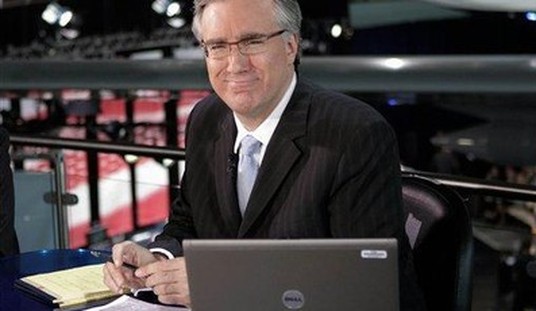As a proud member of the Navajo Nation, I’ve watched with growing concern the last-minute pandering by Democrats to win the Native vote, particularly in our community. The attempt feels hollow, especially when we remember how leaders like Tim Walz allowed cities like Minneapolis—home to many of our urban Native brothers and sisters—to descend into chaos. While buildings burned, including a Native nonprofit, our voices were ignored, and our communities left unprotected. These actions left scars that still resonate painfully within us today.
Kamala Harris, tasked with overseeing the border and spearheading the national broadband initiative, has utterly failed to bring meaningful progress to Indian Country. After nearly four years, not a single new broadband initiative has reached our communities, leaving us further disconnected. Biden’s promises have proven equally empty—college tuition relief never materialized, the affordable housing crisis remains unaddressed, and the federal minimum wage is still stuck below $15 an hour. For all the talk, this administration has offered little in the way of real solutions for Native Americans.
Secretary Haaland’s time in office has been defined by inaction on critical Native issues. Scandals, such as the cover-up of the assault at Haskell University, have gone unresolved, while her restrictive anti-oil policies have stifled economic growth in communities like the Nageezi Chapter. Meanwhile, rampant disenrollment abuses have continued unchecked, leaving many Native families vulnerable and disconnected from their tribes. Instead of addressing these urgent concerns, her leadership has been marred by silence and missed opportunities to uplift Indian Country.
I urge readers to remember Kamala Harris’s troubling record as California’s Attorney General, where she denied over 15 land-to-trust applications and exploited the restrictive Carcieri legal loophole, stalling much-needed tribal economic development. Her decisions hurt Native communities then, and her track record hasn’t improved.
Urban Natives and citizens across Indian Country are seeing through these broken promises and the last-minute attempts to court our votes. Data already shows rising support for President Trump, Kari Lake, and Eli Crane. With the early voting push led by Charlie Kirk’s Turning Point Action, Native Republican voters are turning out in record numbers, determined to make their voices heard.
Recommended
This is why I am proud to vote for Kari Lake. She has taken the time to build genuine relationships and earn endorsements within our community. Unlike politicians who breeze through for a photo op, Kari has had meaningful face-to-face conversations with Native women, tribal elders, and people of faith, including our LDS relatives. She has visited the Navajo Nation three times, not for the optics, but to engage in real dialogue and listen to our concerns.
In stark contrast, the recent Democratic outreach efforts, including Biden’s too-late boarding school apology, feel more like last-minute, hollow gestures than meaningful support. These actions reveal a party more worried about losing the Native American vote than providing genuine care for our communities. The boarding school initiative, which claims to offer healing, has instead reopened painful wounds, forcing us to dig up our loved ones and move them to government-approved reservations. This disrespect for our sacred burial practices has further alienated many of us from the so-called healing it promises.
This mishandling underscores just how out of touch the current administration is with Native values and our need for healing on our own terms. Our traditions emphasize allowing our ancestors to rest undisturbed, honoring their memory without government interference. The Biden-Harris administration’s actions, fail to respect our culture and the ways we process the traumas that still affect our people today.
We are fortunate to have leaders like President Trump, who not only talks the talk but delivers real results for Native communities. His track record speaks for itself—federally recognizing seven tribal nations, adding Navajo uranium mines to the Superfund list, funding Tribal land public safety, and taking meaningful action to address the crisis of missing and murdered Indigenous women by establishing new regional offices. These efforts, sadly, have been neglected and stalled under Democrat leadership, with just one task force meeting last year and no sign of the MMIW Arizona office promised by Katie Hobbs. Meanwhile, the Biden administration has allowed cartel crime to spread, infiltrating reservations as far north as Montana.
Under an America First agenda, Indian Country will once again see a thriving economy and safer communities. We cannot survive another term of Democrat economic policies that have proven disastrous for our people. Tribal citizens are waking up to the reality of Democrat priorities—funding foreign wars and pursuing open-border policies that drain resources from our communities. We do not want to send our children to fight in foreign conflicts when our own land and people need protection.
This election, Indigenous Peoples across Arizona and the nation are reassessing the Republican Party, taking a second look at Trump, and increasingly voting Republican down the ticket. I’m grateful to my relatives who are waking up, rejecting the Democrats’ weak, last-minute apologies, and embracing real America First action. President Trump needs strong senators and leaders to advance this agenda and protect the freedoms of our nation—not because of political optics, but because it is the right thing to do for our communities and for the future of this country. Now is the time to vote for America First, because our families and our freedoms depend on it.
Mike Woestehoff is a Navajo citizen, born in Tuba City and raised in Ganado, Arizona. He is a long-time advocate for Indigenous communities.


